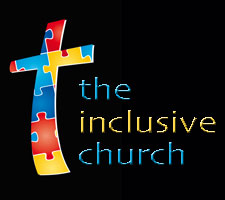Autism and the Church
Have you ever heard of a church that turned away a little boy because he had red hair? What if a mother was greeted at the children’s ministry check-in with news her redheaded son had to go back home? No, you can’t imagine. If any church ever sent home a child because of their natural hair color it would make the evening news!
Now, have you ever heard of a church that turned away a little boy because he was on the autism spectrum? What if a mother was greeted at church check-in with the news that her son with autism couldn’t be accommodated? Yes, you can imagine. It happens.
Did you know that the percentage of Americans with red hair¹ is roughly equal to the percentage of 8-year-old boys diagnosed with autism? I think it’s fair to say that statistically speaking, a children’s ministry should have the same number of participating boys with autism as with red hair. That’s pretty sobering. People would go nuts (justifiably) if families of redheaded kids had to figure out which churches were “redhead friendly”. The reality is that this same scenario is happening now for families of kids with autism. While many churches are working to become special needs-friendly, there is room for improvement.
Recently a church leader said to me,
“We just don’t have any kids with significant special needs in our church. We haven’t seen the need to create a ministry or think about doing anything special to accommodate students with disabilities.”
I didn’t say anything in response. But given the size of the church, this statement seemed doubtful. Intuition told me that this leader was disengaged and inexcusably unaware of what was going on in the lives of church families. I also wondered if perhaps this leader had somewhere along the way earned the reputation of being “unfriendly to special needs”. Once a church or church leader has earned that reputation, impacted families go elsewhere or nowhere.
Looking back on my brief dialogue, I’m pretty sure the Holy Spirit restrained my sharp tongue. Everything inside of me wanted to quip back, “So your megachurch doesn’t have any kids with red hair?” I’ve since envisioned a hypothetical conversation addressing the statistical improbability of that ministry leader’s declaration. But it’s just as well I didn’t respond the way I wanted to…real change never happens by embarrassing a person.
Okay, back to my point. In church world, we’re at a fork in the road. Up to now, it’s been an accepted norm that not all churches could or should accommodate kids with autism and other special needs. (And I share in my book that not all churches can accommodate to the same degree.) But times are a changin. It is no longer acceptable for any church to be unaware of and unprepared to welcome families with special needs. Every church needs a plan for inclusion. And the best place to start is by hiring a special needs-friendly family mininstry leader.
Autism Facts
- About 1 in 68 children has been identified with autism spectrum disorder (ASD)²
- ASD occurs in all racial, ethnic, and socioeconomic groups.²
- ASD is almost 5 times more common among boys (1 in 42) than among girls (1 in 189).²
- Parents who have a child with ASD have a 2%–18% chance of having a second child who is also affected.²
- ASD tends to occur more often in people who have certain genetic or chromosomal conditions. About 10% of children with autism are also identified as having Down syndrome, fragile X syndrome, tuberous sclerosis, or other genetic and chromosomal disorder.²
- Almost half (46%) of children identified with ASD has average to above average intellectual ability.²
- Most children identified with ASD were diagnosed after age 4, even though children can be diagnosed as early as age 2.²
¹ Number of Americans with red hair http://health.yahoo.net/experts/dayinhealth/weird-facts-about-redheads; Total US Population https://www.census.gov/popclock/
² http://www.cdc.gov/ncbddd/autism/data.html
Oh, and Happy World Autism Awareness Day!
~ Amy Fenton Lee




It’s so sad, but all too common, that church leaders do not see the need to make space for those who aren’t there. It’s not that they do not want to be welcoming, but rather they misunderstand the needs. A fellow D. Min student decided to do a study finding out how many churches in her area offered a ministry for those with special needs. One church replied to her that there was no need for a special ministry because everyone was welcome. While that sounds good, the reality is that many need accommodations simply to be part of the community. I celebrate the churches that understand that need and actively seek tools to better equip their communities to welcome others. It is exciting to see how far faith communities have come in welcoming families with differences.
This unfortunately happened to us last week. 😦
Cornerstone United Methodist Church in Garland, TX (north Dallas suburb) truly understands! Every Sunday as our “prime time” 11am weekly service we celebrate “theTable.” We call it “a wholly-inclusive worship for everyone, with or without special needs.” It’s a worship experience intentionally designed to welcome individuals and families experiencing special needs. All are invited, whether they are experiencing autism, issues of delayed development, cerebral palsy, or a host of others anywhere along the spectrum (and yes, redheads too!). All are invited to worship as we’ve opened our doors wide to experience the beauty of God’s presence in our “sacred chaos.” We’d welcome any and all to come and trust that this is the real deal. For more details you can visit http://www.LoveKnowServe.org/worship.
Our continued thanks and prayers for you.
It is sad that many leaders do not seem to realize a couple of things by not having a special needs ministry; 1) those called to serve families of special needs kids cannot fully utilize their gifts/abilities and 2) the parents of special needs kids also cannot worship as a family and cannot serve and utilize their gifts. I look at the parents of our special needs families and our church is blessed to be able have faithful servants as part of our worship team, guest services, shepherds, and other areas.
Church leaders, our program start was really super easy; our CP asked some questions, lined up a buddy for the child, and made available space. I promise you, lives have been changed because of these simple things.
Amy, again thank you for your continued voice,
Stu
Great article – I have read and used your book in training for our Sunday club leaders. But there is a long way to go…. Lynn
Reblogged this on The Other Side of the Table and commented:
As I read through this blog it, unfortunately, reminded me of my own experiences with finding a church “friendly” to our needs. I am not sure if the church leadership is disengaged from the congregations they serve or if more and more families with special needs are staying home on Sunday morning. I miss church. I miss the rejuvenation, the fellowship, the personal growth. I feel like a bad parent because my children do not go to church on a regular basis. However my reality is that if we were to go to church this Sunday morning, I would spend the entire time trying to either A. provided the right sensory, motor, and calming techniques for my little one during a time when every movement and noise is magnified or B. having the nursery person come get me because they are not sure what to do about her. Someday maybe we will make it back to church.
Been there too! The Roman Catholic church we were members of REFUSED to allow my then 7 year old son with Asperger’s to attend CCD/First Holy Communion class!!! Having been rejected from nearly all other “neuro-typical” sports groups and clubs–including Boy Scouts, I had pretty much lost faith in humanity and the church–having been taught my whole life about “taking care of the poor and downtrodden among us, blah, blah, blah.” Fast forward 6 years and I’m happy to have found an RC church and school that WELCOMES children with disabilities and was even given an adapted Sacraments kit so that my children (both on the spectrum) can fully participate in the programs and establish their own relationship with God–as was how I was raised/taught.
It’s so sad and incredibly frustrating to think that those who teach us to be so loving and forgiving can be incredibly hypocritical.
Yes!!!
Lori, I assume you are talking about the adapted Sacraments kit from Loyola Press? http://www.loyolapress.com/special-needs.htm
I absolutely love what Loyola Press has done to help students develop their faith (I think these kits are helpful for all kids, regardless of “special needs”). Anyway, I think it was a huge step forward for all Roman Catholic worshippers when a respected publishing house provided such a helpful tool. Kudos to the wonderful church you have now that welcomes your children. I truly believe it will become the norm for churches to be more welcoming and accepting! ~ AFL
As a pw, I agree that we need more inclusivity for special needs ministries. However while I can find a great deal of articles complaining about the lack of, or pointing out the shortfall, I find very few resources for us to build this ministry. With no specific training available in many small town churches, it’s a huge struggle to understand WHAT needs to be done for this ministry.
Many of our churches see the need, but do not understand how to fill it and where to find the resources to train up our staff/volunteers.
its easy to complain about the situation, but what can you suggest or offer to help solve it?
ptpw (perfectly tracy) – Don’t laugh at me but I need clarity for what “pw” stands for.
I share your frustration regarding the “complaining” articles. It is true that proposed solutions rarely accompany aired complaints. I remember when I wrote this piece a year ago and I was thinking that my tone (more negative than usual). This post is a departure from my commitment to make the blog about proactive positivity, and focusing on solutions rather than problems. But my thought at the time was that I had earned the right to be negative and complain…because of theinvestment I had already made in developing solutions.
You ask for my suggestions related solving the problem…
1) Browse through the 300 solution-oriented posts on this blog.
2) Checkout the 55,000 word book: Leading a Special Needs Ministry: A Practical Guide to Including Children and Loving Families.
3) Watch the 80-minute Volunteer Training DVD: Surviving to Thriving: Successfully Including the Child with Special Needs
4) Google and network…there are good resources, organizations, and people who truly want to provide practical help.
-Barbara Newman is a fantastic author and teacher on this subject.
-Friendship Ministries provides quality materials to help churches include persons with intellectual disability.
-Erik Carter has a fantastic book on the subject of church inclusion and some of his lectures can be found online.
-Joni & Friends provides books and people (their employees) to support church inclusion.
-Dr. Gary Sweeten has resources (look for his YouTube videos!) on how churches can support special needs families.
-Paula Kluth’s books provide fantastic curriculum adaptation ideas. (Secular guidance can often work for church settings!)
-Find churches and leaders already doing special needs ministry. Their insight is golden! (Many are featured on this blog.)
– Contact local special education professionals and pediatric therapists. Most want to see their students and clients experience acceptance. As a result, many are willing to advise, train and help churches (even if the requesting church is different from their own faith.)
P.S. If “pw” stands for pastor’s wife…then you’ll appreciate the fact that I’m a PK.